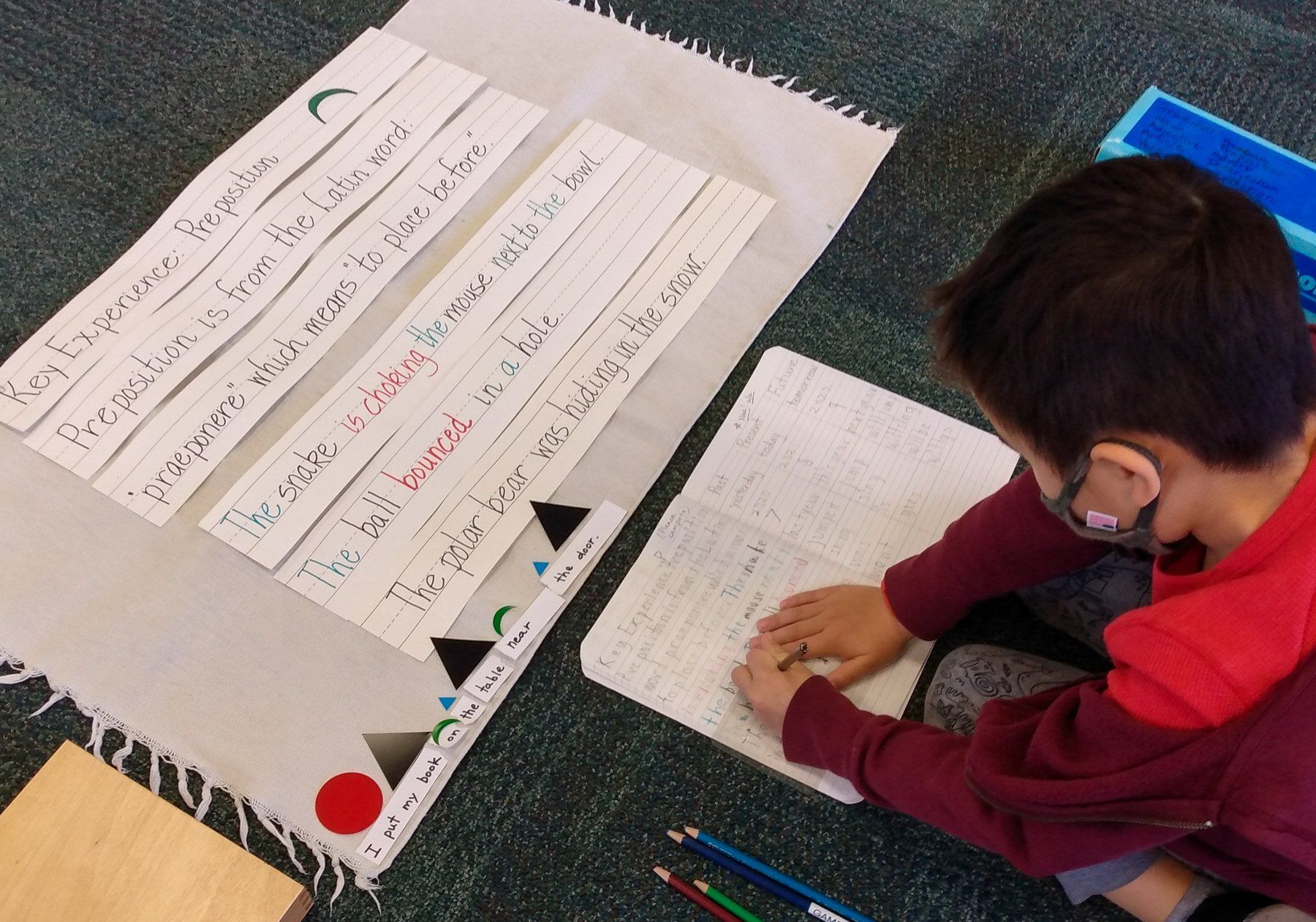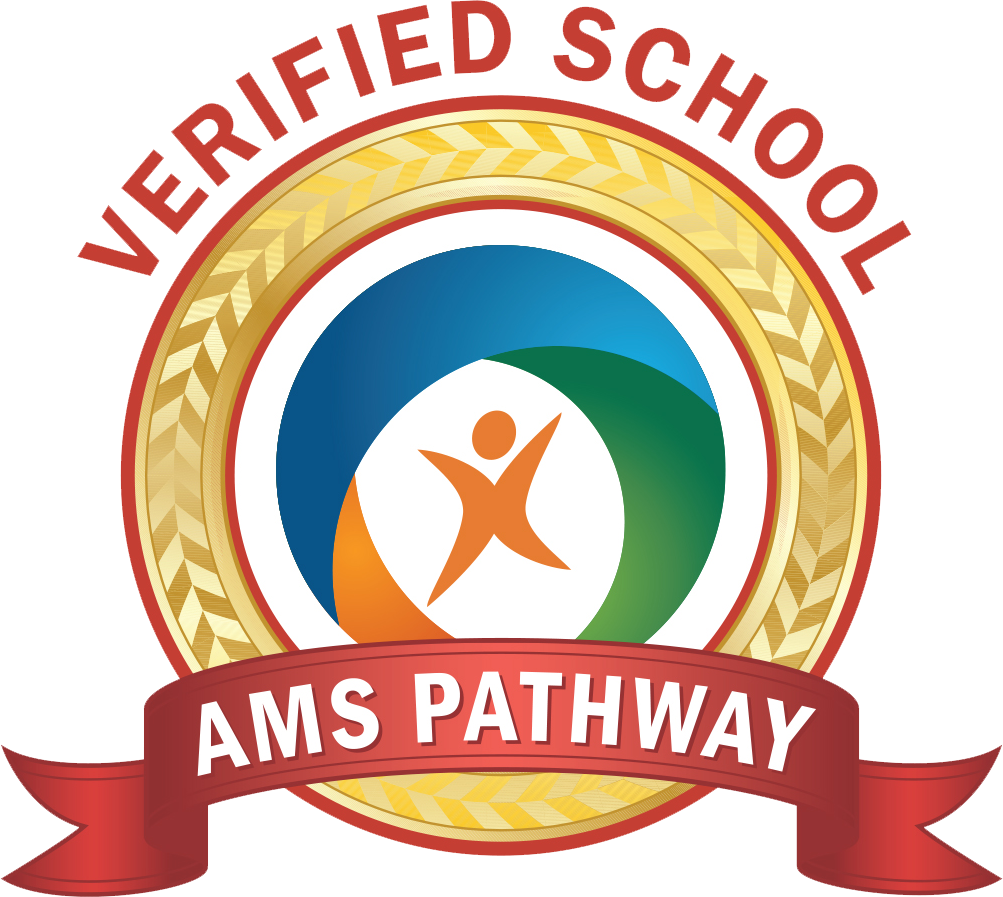Montessori Grammar Materials

Montessori grammar materials are so beautiful, and they do a great job of drawing kids in to learning about something many of us dreaded when we were kids ourselves.
The Grammar Boxes
Around the second half of lower elementary, children use the grammar box materials. The grammar boxes consist of wooden boxes containing cards with words and phrases, sectioned trays to lay the cards in, and open-topped containers with larger index-sized cards.
Students start working with the latter, which are called command cards. The command cards direct children to physically do specific things. “Throw the eraser out the door” is a crowd favorite. This is one exciting way Montessori turns language work into something more hands on and participatory.
Once they’ve worked their way through the command cards, children engage with the filling boxes, recreating phrases and sentences and identifying the various parts of speech.
At some point, the children learn the corresponding symbols for each part of speech (some are seen above in the picture), and they become able to write sentences in their notebooks and draw the correct labels above each word.
The grammar boxes are typically completed sometime during the final year of lower elementary, although upper elementary guides may choose to use the material for review purposes.
Sentence Analysis
Montessori sentence analysis is not the same as the sentence diagramming some of us did when we were younger, but it is based on some of the same concepts.
At this point in a child's Montessori education, they are beginning to move toward what we call abstraction. That is, they are beginning to internalize concepts in a way that doesn’t require them to use hand-held manipulatives or materials nearly as often. This is obvious in that the sentence analysis materials are still moveable, but there’s a lot less to interact with. A series of wood circles and arrows, they help the child learn concepts like subjects and predicates.
Eventually, sometime in upper elementary, children explore all kinds of sentence analysis concepts, like indirect objects and adverbial extensions.
Want to learn more about the Montessori language curriculum and materials? Keep an eye on our blog as we highlight more throughout the school year.

